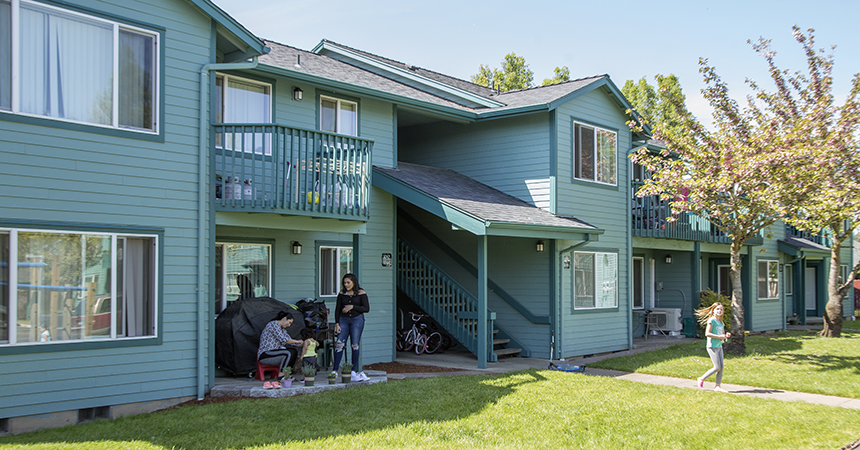
Energy Trust was among the participants at an Oregon Public Utility Commission workshop this month on ways to help residential utility customers affected by COVID-19.
As commissioners heard, many Oregonians were already facing high energy burdens, which is when utility costs are 6% or more of a household’s income. People of color and rural Oregonians are more likely to be energy burdened, according to Oregon Housing and Community Services. (Check out this interactive map for geographic energy burden information.)
In response to COVID-19, Oregon’s investor-owned electric and natural gas utilities have suspended disconnections, are waiving fees for late payments or payments by credit card, and are offering flexible payment options. Still, utility representatives told commissioners the percentage of customers with past due accounts is increasing. NW Natural has seen a 12% increase in accounts 30 days past due, while PGE has seen a 41% increase.
Meanwhile, local community action agencies are reporting a sharp increase in requests for assistance. These agencies provide low-income Oregonians with help paying energy, rent and other bills and connect them with other assistance, including food banks. According to the Community Action Partnership of Oregon, rental assistance requests alone have increased 500% in recent weeks.
One source of relief came in the form of increased funding for the Low Income Home Energy Assistance Program (LIHEAP), which in a typical year covers 20% of the need for energy assistance in Oregon. Through the federal CARES Act, the program has an additional $24.5 million for 15 months and has broadened income requirements for some of the additional funding to provide immediate support to more people who need it.
Local groups are also responding with relief programs. The Portland-based nonprofit Verde, an Energy Trust partner, has been delivering food boxes to manufactured home parks and offering rental assistance to 125 households that have lost more than 50% of their income.
Energy Trust’s Ryan Crews and Debbie Menashe told commissioners about Energy Trust’s efforts to help customers during the pandemic, including a LED bulb giveaway with community agencies and food banks. Energy Trust is also promoting free Energy Saver Kits that contain energy-saving products and has expanded eligibility criteria to help more people qualify for higher Savings Within Reach incentives.
Sherrie Villmark of the nonprofit Community Energy Project, which helps low-income residents make weatherization and other home upgrades, told commissioners a common barrier for people trying to access assistance programs is lack of internet access. The Oregon Citizens’ Utility Board recommended energy assistance programs include things like bill moratoriums, debt forgiveness and payment plans, while real-time data on utility customers who owe money could help inform policy changes.
Other participants in the June 9 workshop included representatives from Clackamas County Social Services and APANO. Listen to audio recordings of the workshop here.
OPUC has formed an internal COVID-19 response team to consider changes. This team is engaging interested stakeholders and groups for more information on impacts for customers and ways to support them. Energy Trust is participating in the series of low-income workshops to learn and provide information on how Energy Trust serves lower-income customers.
